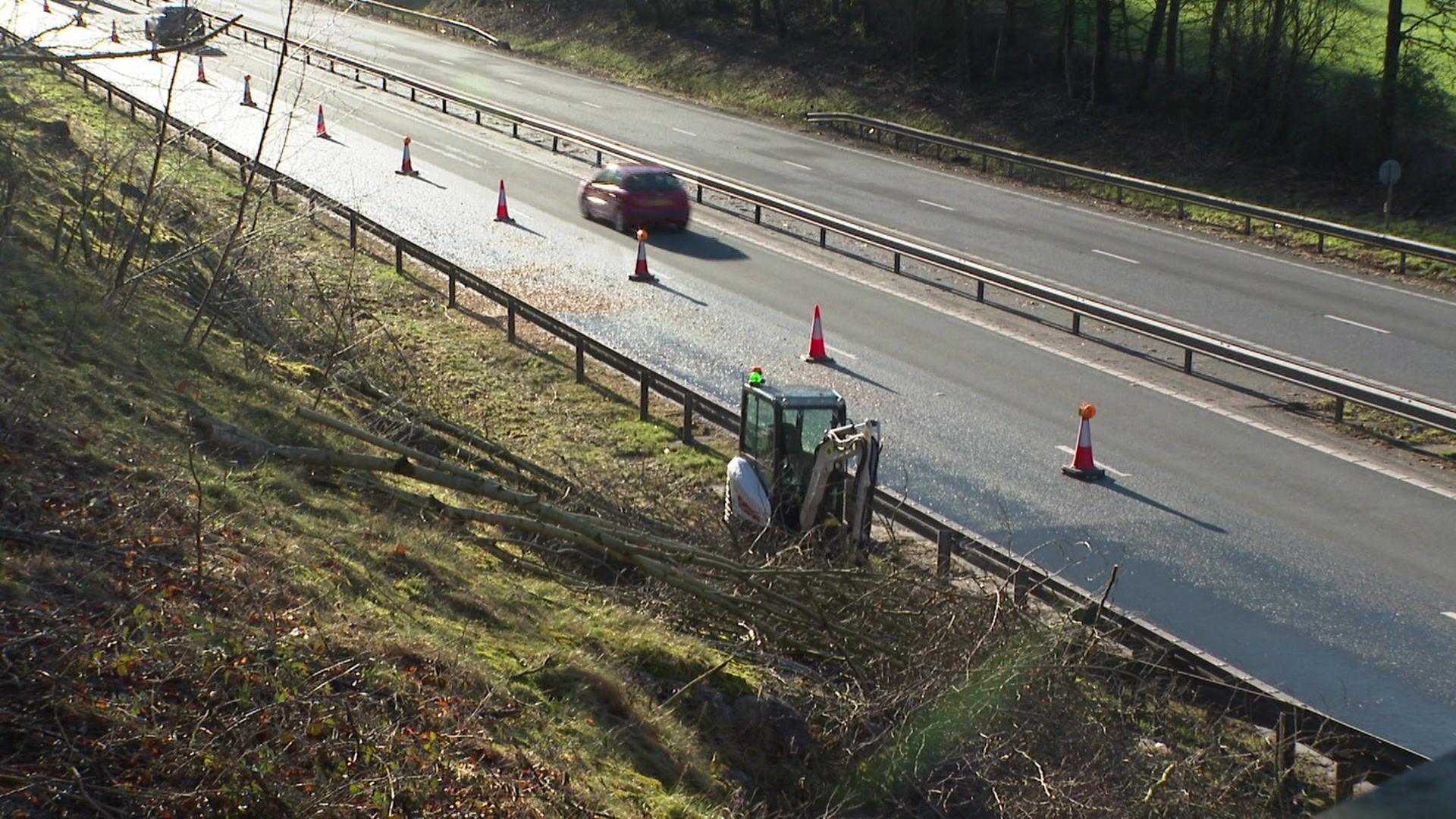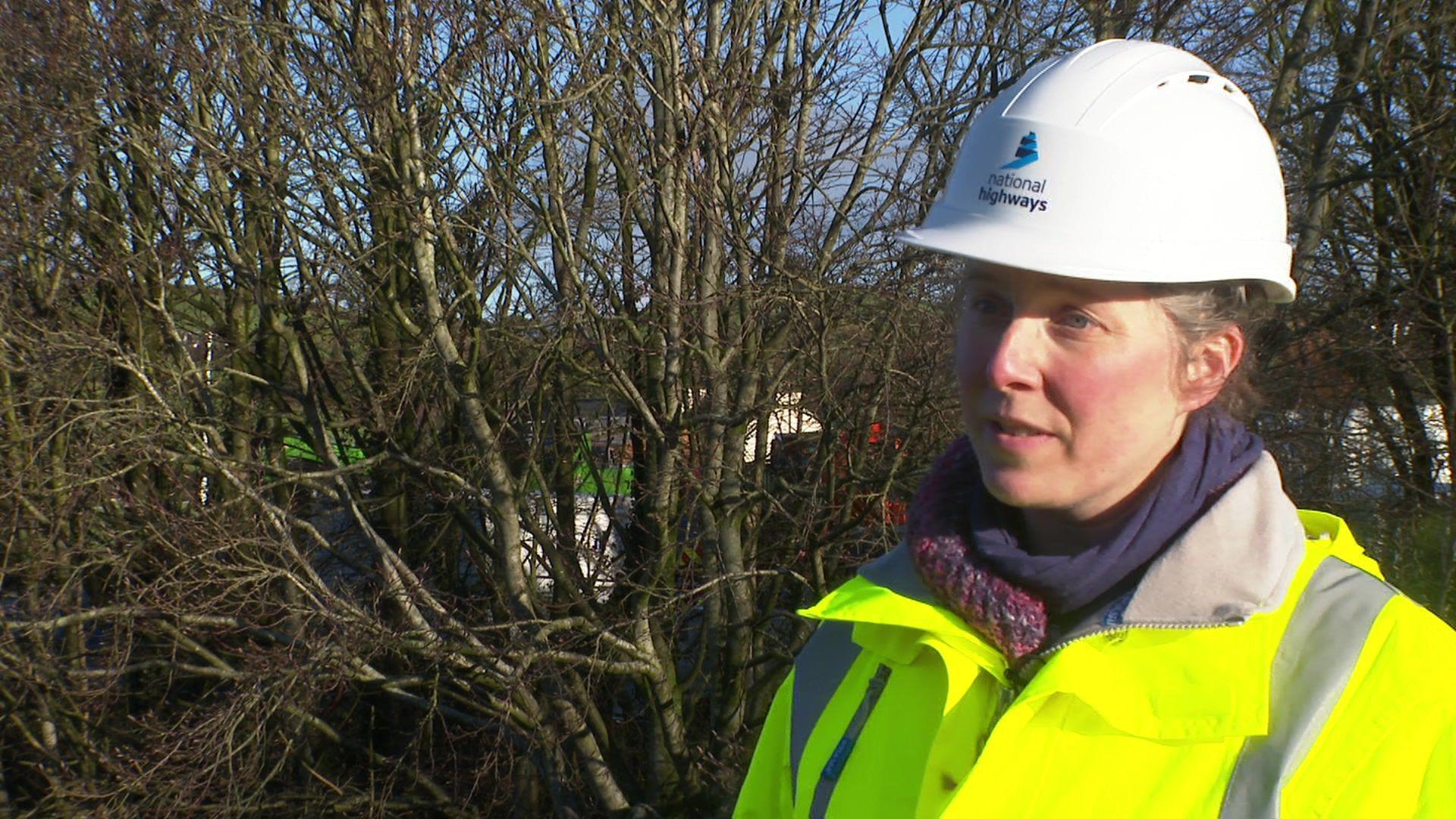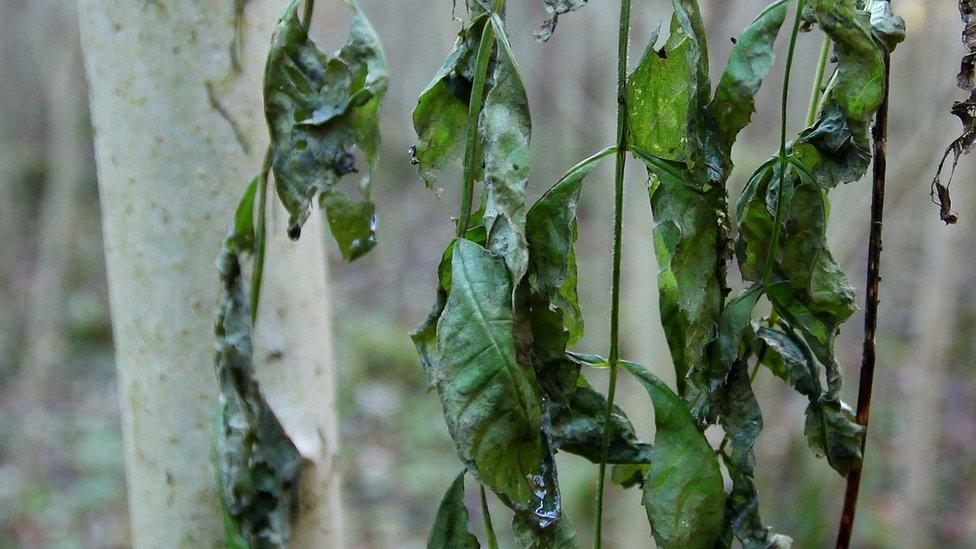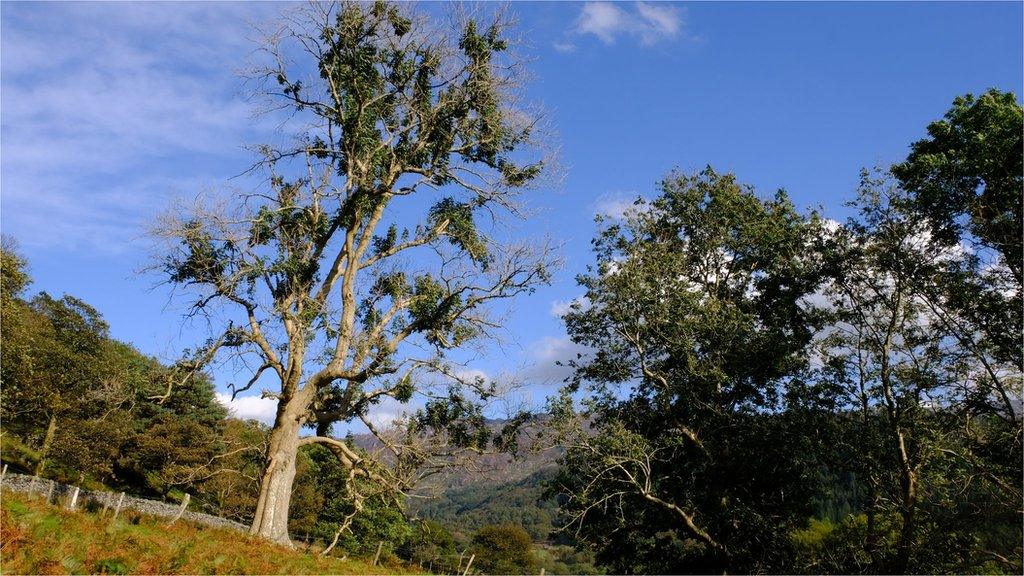Diseased trees near motorways to be felled

Thousands of trees are being removed along roadsides
- Published
Thousands of infected trees near motorways will be cut down to keep drivers safe.
Between 15,000 to 20,000 trees are being removed by National Highways as part of efforts to limit the spread of the ash dieback fungus.
Work will be carried out across a number of roads in Cumbria, including the M6 and the A590.
National Highways said it wanted to do everything it can to "preserve biodiversity" on its land, but needed to make sure people remained safe.
Ash dieback is a fungus that damages shoots, branches and trunks of ash trees and kills most of the infected trees.
National Highways is spending £2m to cut down and prune trees along the M6, A590, A56, M56, M66, M58, M60 and M6, over fears the infected trees could fall into the road.
Chloe O’Hare, from National Highways' environment team, said: "We do find that we have to carry out work sometimes that is not necessarily what we want to do environmentally but we have to do it for safety reasons."

Chloe O'Hare said National Highways was planting other trees, such as hazel, to improve biodiversity
The aim is to complete the work before birds begin to make their nests in the spring.
Some work will be carried out overnight to minimise disruption, but it means one or two lanes will be closed to keep drivers safe.
'Resistant'
Ash dieback can travel up to 75km via airborne spores, so little can be done to stop the disease from spreading.
But Barnaby Wylder, of the Forestry Commission, said ash trees were resilient.
"They have wide genetic variability," he said. "We know there are tolerant trees out there. It's our third most important broadleaf species."
He added many plants and animals relied on ash trees for survival.
Ms O'Hare said: "The hope is that some ash trees will be resistant to [the fungus].
"So whilst we are taking out ash trees that are suffering, we are being quite careful to leave some that look like they might be resistant to the disease."
Follow BBC Cumbria on X (formerly Twitter), external, Facebook, external and Instagram, external. Send your story ideas to northeastandcumbria@bbc.co.uk.
Related topics
More stories from BBC North East and Cumbria
- Published18 December 2021

- Published18 November 2019
